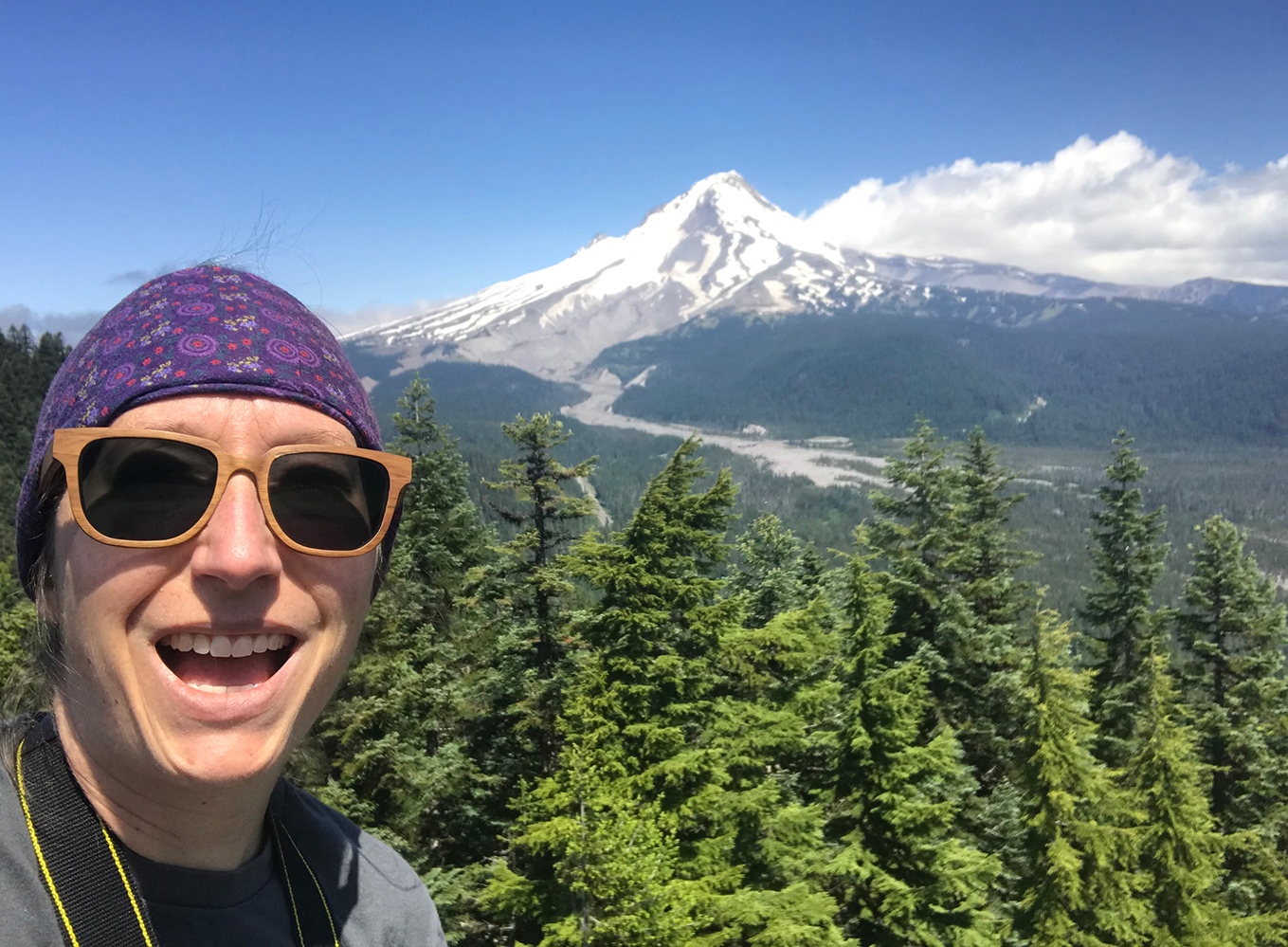
4 minute read
Alumni Profile: Casey Marin-Shover '07
Casey Marin-Shover ’07 found her place at Radford, but it came at a price.
The psychology major walked away from a softball and academic scholarship at another school where she felt “out of place” – not an unfamiliar feeling for her in those days –before coming to Radford.
“The only place where I felt I belonged was on the ball field,” she said. “I had always been an athlete, and playing softball was where I found my passion.” But, she discovered, “the culture on campus made me feel like an outsider.”
After meeting her first girlfriend, a Radford student, she was drawn to the welcoming and inclusive vibe she found during her visits to campus.
“I learned that there are places where I could exist without feeling judgment,” she said. “It wasn’t that I just finally met people that were exactly like me, but I found a group of people that understood, acknowledged and had an open mind to diversity. There was acceptance.”
She transferred at the beginning of her junior year, and without scholarships, her mostly debt-free education became expensive. But becoming a Highlander was worth it.
“I was in a space that allowed me to be myself with authenticity,” she said. “I found people that came from various walks of life. Everyone was welcome. During my time, I was exposed to different opinions about the world, politics, culture and life. It helped open my mind, and I believe I became a better person from the experience.
“I started to see that there are people who focus on you as a whole person instead of just various, uncontrolled aspects of who you are. One piece of a person does not make them out to be good or bad. It shaped my confidence in myself, knowing that there are people in the world who do not think I am a terrible person because of who I am. I no longer felt the need to hide.”
She joined the softball team, where she was known for her passion, hard work and team spirit – though not her superior stats. She says that most of the life skills she acquired at Radford came from those days.
“I was a benchwarmer,” she said. “I stuck it out all the way through my senior year. Was it difficult? Absolutely. What senior sits the bench? But I learned that I can still be a leader without being the best.”
Those values – and the emphasis on empathy and understanding – followed her in her postgraduate academic work and career as a board-certified behavior analyst.
“I am 100% the sole owner of Climb Behavioral Solutions, but that doesn’t mean I don’t have a team of amazing people,” she said. “I see my job as being the person to identify strengths in my team and then place them in positions to let them thrive. It’s almost like I have gotten to be a coach, but instead of winning games, we get to help kids and their families.”
At Climb, which she founded in October 2020, MarinShover has found a calling rooted in her academic fascination with behavior and abnormal psychology, sparked by her undergraduate bond with Professor Ann Elliott, who shared stories of clinical practice and nurtured Marin-Shover’s interest in research.
Today, Marin-Shover leads a staff of 53 at the Portland, Oregon, clinic. She and her team employ Applied Behavior Analysis to help children with autism spectrum disorder and other developmental disabilities increase functional communication, build language and living skills, decrease problem behaviors and ultimately improve their quality of life.
“Working with kids helps keep a person grounded and can be a reminder to focus on the little things,” she said. “A client might notice the way that water droplets fall in the sunlight through the window or the reflection of light across the wall. It taught me that we all have a different perspective and ways to view the world.”










